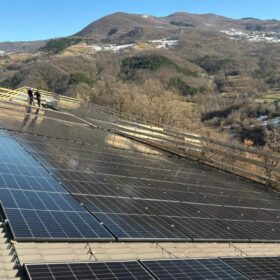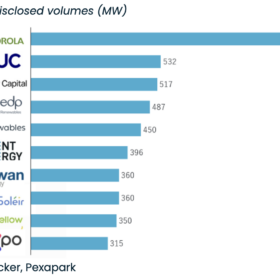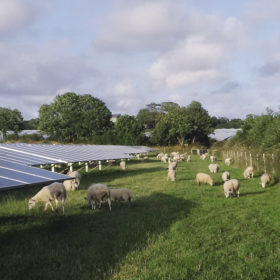EU escalates infringement procedures over energy permit laws
The European Commission has launched legal action against eight EU member states for failing to transpose its revised renewable energy directive into national law.
Trina Solar sues Canadian Solar over patents in $147 million lawsuit
Trina Solar has filed a lawsuit against Canadian Solar and its subsidiary, seeking $147 million in damages for alleged infringement of tunnel oxide passivated contact (TOPCon) cell patents. The case, accepted by the Jiangsu High Court, underscores the rise of intellectual property disputes in China’s competitive solar sector.
A fork in the road for energy storage
Faster-than-expected price falls and global oversupply of batteries will go up against a rising tide of global protectionism this year. So how will it all shape up for the energy storage industry? Storage industry thought leader and UN adviser Marek Kubik considers the key issues.
JinkoSolar sues Longi in Australia in third patent case this year
JinkoSolar has sued Longi for alleged patent infringement in Australia, its third legal action against the company this year, following filings in China and Japan. The lawsuit, filed in the Federal Court of Australia, claims that Longi used an unspecified solar cell technology.
German court rules Senec dealer must refund cost of reduced-capacity home battery
Judges at Bielefeld Regional Court ruled the maximum 70% operating capacity of the home battery – while replacement lithium ferro-phosphate (LFP) cells are awaited – is a material defect. Senec is appealing against the ruling.
Community managers key to wider adoption of energy communities
New research from France suggests that energy communities could benefit from dedicated community managers to address operational complexities. Researchers says that this role could offer contracts or assurances to ease concerns among risk-averse members.
A 920% tariff on anode materials from China ‘would throw the economics of U.S. storage out of whack’
Battery installations in the U.S. are threatened by the imposition of anti-dumping, countervailing duties on active anode materials. The supply chain for Active Anode Materials (AAM) is dominated by Chinese producers, with attempts to establish the full supply chain outside of China years away.
Corporate PPAs soar in Europe in 2024, despite decline in total deal volume
Pexapark, a Swiss renewables intelligence provider, says corporate power purchase agreements (PPAs) surged in Europe’s renewable energy market in 2024, despite a decline in overall contracted volumes.
UN refugee agency to power most of its offices with PV
The United Nations High Commissioner for Refugees (UNHCR) has revealed plans to install solar systems in 18 offices by 2025, aiming to cut emissions and reduce reliance on diesel.
Public opinion matters to the success of solar planning
New research from the UK finds institutional actors have greatest influence over planning consent, however, public support also has a statistically significant impact. Improved public engagement from developers could bolster solar planning applications in England.










